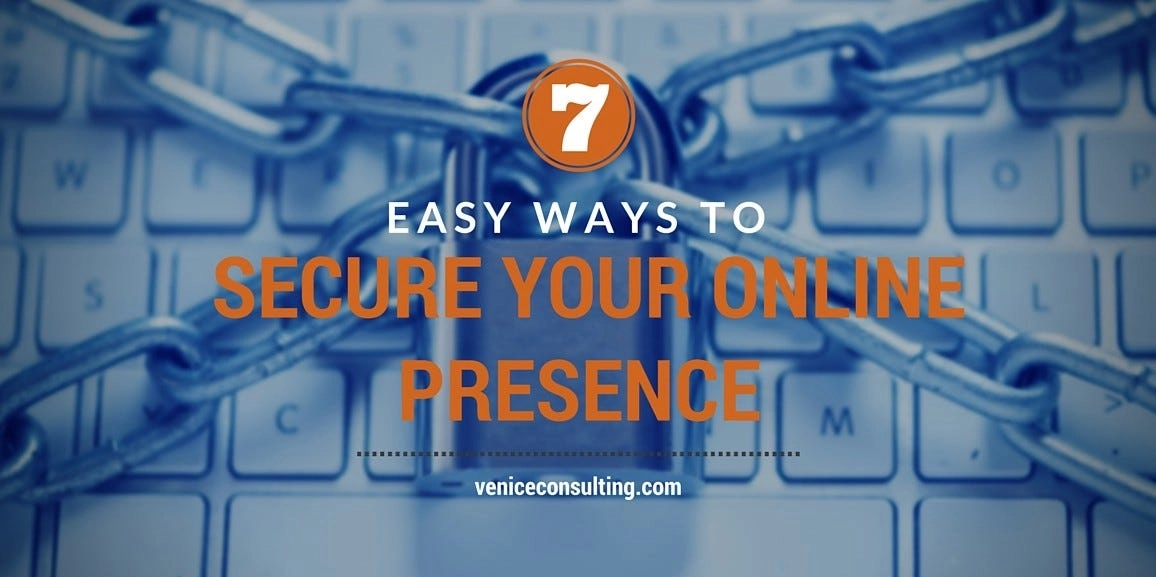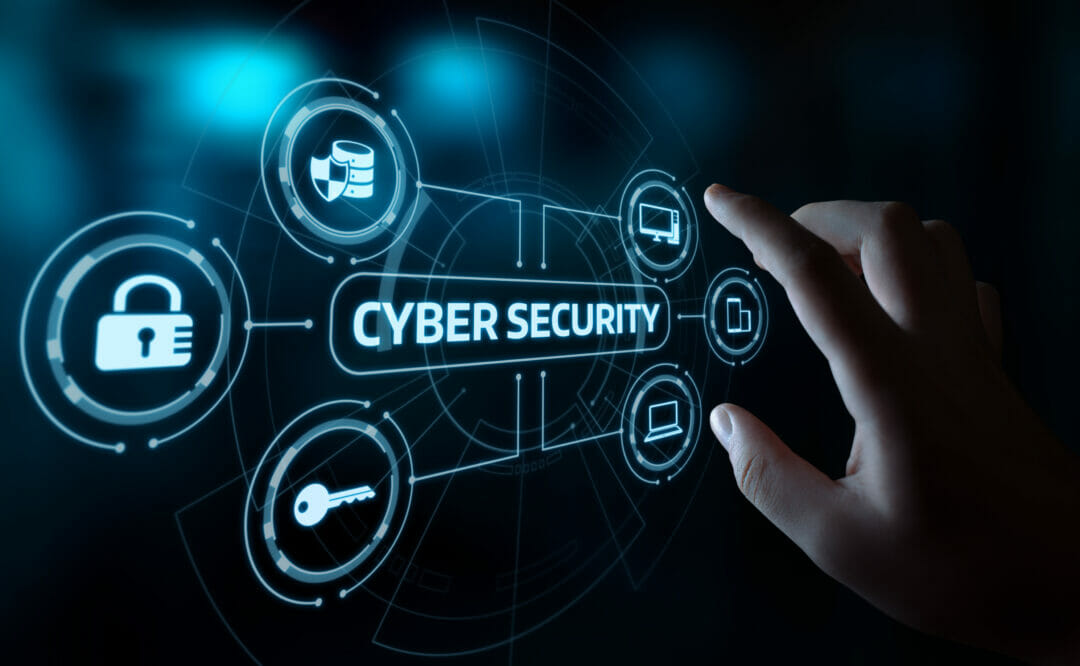The Ultimate Guide to Securing Your Online Presence: Expert Tips and Strategies

Securing your online presence has become more crucial in today’s digital age. Whether you are an individual or a business, the internet is an integral part of our lives, making us vulnerable to various threats. Understanding the importance of securing your online presence is the first step towards safeguarding your personal and professional information.
One primary reason to secure your online presence is to protect your sensitive data from unauthorized access. Hackers and cybercriminals are constantly looking for opportunities to exploit vulnerabilities in your online accounts and gain access to your personal information. This can lead to identity theft, financial loss, and even reputational damage. By implementing security measures, you can significantly reduce the risk of falling victim to such attacks.
Another reason to secure your online presence is to maintain your customers’ and clients’ trust and confidence. Consumers are becoming increasingly cautious about sharing their personal information in today’s interconnected world. By demonstrating that you take online security seriously, you can build trust with your audience and differentiate yourself from competitors.
Common Threats to Your Online Presence
Before discussing the best practices for securing your online accounts, it’s essential to understand the common threats you may encounter. By knowing these threats, you can better prepare and proactively mitigate the risks.
Phishing: Phishing attacks involve tricking individuals into revealing their sensitive information, such as passwords or credit card details, by posing as trustworthy entities. Deceptive emails, messages, or websites typically carry out these attacks.
Malware: Malware refers to malicious software designed to disrupt, damage, or gain unauthorized access to computer systems. This can include viruses, worms, ransomware, and spyware. Malware can be spread through infected websites, email attachments or downloads.
Brute Force Attacks: Brute force attacks involve systematically trying various combinations of usernames and passwords until the correct one is found. This attack is often automated and can be used to gain unauthorized access to online accounts.
Social Engineering: Social engineering attacks exploit human psychology to manipulate individuals into revealing sensitive information or performing specific actions. These attacks can involve impersonation, manipulation, or deception.
Best Practices for Securing Your Online Accounts
Securing your online accounts is essential to protect your personal and financial information from cyber threats. Start by using strong, unique passwords for each account, ideally generated and stored by a reputable password manager. Enable two-factor authentication (2FA) wherever possible, adding an extra layer of security beyond just a password. Be cautious of phishing attempts avoid clicking on suspicious links or providing login credentials through unsolicited emails or messages.
Regularly update your software and apps to patch security vulnerabilities, and monitor your accounts for any unauthorized activity. Lastly, use secure connections by avoiding public Wi-Fi for sensitive transactions and ensuring websites use HTTPS encryption. By following these best practices, you can significantly reduce the risk of account breaches and keep your digital presence secure.
Two-Factor Authentication: How to Set It Up and Why It’s Crucial
One of the most effective ways to enhance the security of your online accounts is to enable two-factor authentication (2FA). This adds an extra layer of protection by requiring you to provide a second form of verification, usually a unique code sent to your mobile device, in addition to your password.
To set up two-factor authentication, start by navigating to your online accounts’ security settings. Look for the option to enable 2FA and follow the instructions provided. Once enabled, you will be prompted to enter the unique code generated by an authenticator app or sent to your mobile device whenever you log in.
Enabling 2FA is crucial because even if someone obtains your password, they can only access your account with the second verification form. This significantly reduces the risk of unauthorized access and protects your sensitive information.
Password Management: Choosing Strong and Unique Passwords

Choosing strong and unique passwords is essential for securing your online accounts. Weak passwords can be easily cracked by hackers, putting your personal information at risk. Here are some tips for creating strong passwords:
Length: Use passwords that are at least 12 characters long. The longer the password, the harder it is to crack.
Complexity: Your passwords should contain a combination of uppercase and lowercase letters, numbers, and special characters. Avoid using common words or predictable patterns.
Uniqueness: Use a different password for each of your online accounts. This way, if one account is compromised, the others remain secure.
Updating Your Software and Applications Regularly
Keeping your software and applications up to date is critical for maintaining the security of your online presence. Software updates often include patches and fixes for vulnerabilities that hackers could exploit. Regularly updating your operating system, web browsers, antivirus software, and other applications ensures that you have the latest security features and protection against emerging threats.
Most operating systems and applications have automatic update settings that you can enable. This way, you don’t have to check for updates manually. Set a reminder to review your update settings periodically to ensure they are enabled and functioning correctly.
Protecting Your Website from Cyber Attacks

Protecting your website from cyber attacks is crucial to maintaining its integrity, security, and trustworthiness. Start by keeping your website software, plugins, and themes updated to patch vulnerabilities that hackers might exploit. Use strong, unique passwords for admin accounts and enable multi-factor authentication (MFA) to add an extra layer of security. Implement a web application firewall (WAF) to filter malicious traffic and protect against threats like SQL injection and cross-site scripting (XSS).
Regularly back up your website to ensure quick recovery in case of an attack. Additionally, use SSL encryption (HTTPS) to secure data transmissions and prevent man-in-the-middle attacks. Monitor for suspicious activity using security plugins or services and conduct routine security audits to identify and fix potential risks. By proactively implementing these measures, you can safeguard your website against cyber threats and ensure a secure experience for your users.
As a business or website owner, securing your online presence goes beyond protecting your accounts. It also involves safeguarding your website from cyber-attacks. Hackers can target websites for various reasons, including stealing sensitive customer data, defacing web pages, or using the website to distribute malware.
Choose a Secure Hosting Provider: Select a reputable hosting provider that prioritizes security and implements robust measures to protect websites hosted on their servers. Look for providers that offer features such as regular backups, firewall protection, and malware scanning.
Keep Your Content Management System (CMS) Up to Date: If you use a CMS like WordPress or Joomla, make sure it is updated with the latest security patches and updates. Hackers can exploit vulnerabilities in outdated CMS versions to gain unauthorized access to your website.
Use Strong and Unique Passwords: Protect your website’s admin panel, FTP accounts, and database with robust and unique passwords. Avoid using default usernames and passwords provided by your CMS or hosting provider.
Implement Web Application Firewalls (WAF): WAFs help detect and block malicious traffic before it reaches your website. They shield against common web-based attacks like SQL injection and cross-site scripting (XSS).
Regularly Backup Your Website: Regularly backing up your website is essential in case of a security breach or data loss. Ensure that your backups are stored securely and can be quickly restored.
Securing Your Social Media Profiles
Securing your social media profiles is essential to protect your personal information, prevent identity theft, and avoid unauthorized access. Start by using strong, unique passwords and enabling two-factor authentication (2FA) for an added layer of security. Review and adjust your privacy settings to control who can see your posts, personal details, and contact information. Be cautious about the information you share publicly, as cybercriminals can use it for phishing or impersonation.
Avoid clicking on suspicious links and verify the authenticity of friend requests or messages from unknown accounts. Regularly check for any unusual activity, such as unrecognized logins or changes to account settings, and enable login alerts if available. Additionally, keep your app and device software up to date to protect against security vulnerabilities. By following these best practices, you can minimize risks and maintain a secure social media presence.
Social media platforms have become integral to our personal and professional lives. Securing your social media profiles is crucial to prevent unauthorized access and protect your reputation. Here are some tips to enhance the security of your social media accounts:
Enable Two-Factor Authentication: Like your other online accounts, your social media profiles should be enabled with two-factor authentication. This adds an extra layer of protection and prevents unauthorized access.
Review Privacy Settings: Regularly review your social media account’s privacy settings and adjust them according to your preferences. Limit the visibility of your posts, control who can send you friend requests or messages, and be cautious about sharing personal information publicly.
Beware of Phishing Attacks: Be vigilant about phishing attacks on social media platforms. Avoid clicking on suspicious links or sharing your personal information with unknown individuals or pages.
Monitor Account Activity: Regularly monitor the activity on your social media accounts. Watch for any suspicious logins or unexpected changes to your account settings. If you notice any unusual activity, immediately secure your account.
Use Strong Passwords: As with any online account, use strong and unique passwords for your social media profiles. Avoid using passwords that are easy to guess or have been used for other accounts.
Educating Yourself and Your Team on Online Security
Securing your online presence is not a one-time task but an ongoing effort. Continually educating yourself and your team on online security best practices is essential to stay ahead of evolving threats. Here are some ways to promote a culture of online security:
Training and Awareness Programs: Conduct regular training sessions or workshops to educate yourself and your team on online security. Cover topics such as identifying phishing emails, creating strong passwords, and recognizing social engineering tactics.
Stay Informed: Stay updated with the latest trends and news in online security. Subscribe to relevant newsletters, follow reputable security blogs, and attend webinars or conferences to expand your knowledge.
Implement Security Policies: Develop and implement security policies within your organization that outline the expectations and responsibilities of employees regarding online security. This can include guidelines for password management, software updates, and safe browsing practices.
Regularly Assess and Update Security Measures: Regularly assess and update your security measures as needed. This includes reviewing access controls, evaluating the effectiveness of your security software, and addressing any vulnerabilities that may be discovered.
The Role of Encryption in Securing Your Online Presence
Encryption is vital in securing your online presence by ensuring your data remains confidential and protected from unauthorized access. It involves encoding information in a way that can only be decrypted with the appropriate decryption key.
When you engage in online activities such as sending emails or entering sensitive information on websites, encryption helps safeguard your data from interception by unauthorized individuals. It creates a secure channel for communication and prevents eavesdropping or tampering with the data.
Symmetric Encryption: The same key is used for encryption and decryption in symmetric encryption. This means both the sender and recipient must have the same key to access the encrypted data. While symmetric encryption is fast and efficient, it requires a secure method of exchanging the encryption key.
Asymmetric Encryption: Asymmetric encryption, also known as public-key encryption, uses a pair of public and private keys. The public key is encrypted, while the private key is kept secret and used for decryption. This allows for secure communication without the need to exchange a secret key.
Monitoring and Managing Your Online Reputation

Securing your online presence goes beyond protecting your accounts and data. It also involves monitoring and managing your online reputation. Your online reputation can significantly impact your personal and professional life, making it essential to take proactive safeguards.
Set Up Google Alerts: Set up Google Alerts for your name or business name so that you receive notifications whenever they are mentioned online. This allows you to track what is said about you or your brand.
Regularly Check Social Media Mentions: Monitor social media platforms for mentions of your name or brand. Respond promptly to positive and negative mentions to show your engagement and address concerns.
Engage in Online Reputation Management: Consider using online reputation management tools or services to help monitor and manage your online presence. These tools can provide insights into what is said about you or your brand and help you take appropriate action.
Address Negative Reviews or Feedback: If you encounter negative reviews or feedback online, respond professionally and address the concerns raised. This demonstrates your commitment to customer satisfaction and can help mitigate the impact of negative comments.
Promote Positive Content: Promote positive content about yourself or your brand by creating and sharing valuable and engaging content. This helps build a positive online reputation and reduces harmful content in search engine results.
The Future of Online Security: Emerging Trends and Technologies

Online security is continuously evolving as new threats emerge and technologies advance. Staying informed about the latest trends and technologies can help you avoid potential risks and effectively protect your online presence. Here are some emerging trends and technologies to watch out for:
Artificial Intelligence (AI) and Machine Learning: AI and machine learning are increasingly used in cybersecurity to detect and respond to threats in real-time. These technologies can analyze vast amounts of data and identify patterns that human analysts may miss.
Biometric Authentication: Biometric authentication, such as fingerprint or facial recognition, is gaining popularity as a secure method of verifying identity. This technology provides an additional layer of security by leveraging unique biological characteristics.
Blockchain Technology: Blockchain technology, known for its application in cryptocurrencies like Bitcoin, has the potential to revolutionize online security. Its decentralized and tamper-proof nature can enhance data integrity and prevent unauthorized access.
IoT Security: The Internet of Things (IoT) has brought connectivity to various devices, from smart home devices to industrial machinery. Ensuring the security of these devices and the data they collect is crucial to prevent potential vulnerabilities and breaches.
Cloud Security: As more businesses move their operations to the cloud, the security of cloud-based data and applications becomes paramount. Cloud security technologies and practices continuously evolve to mitigate risks and protect sensitive information.
Frequently Asked Question
Why is online security important?
Online security is crucial to protect your personal, financial, and sensitive information from cybercriminals. Without proper security measures, hackers can steal your data, access your accounts, commit fraud, or even hold your information for ransom. Strengthening your online security helps prevent identity theft, financial loss, and unauthorized access to your accounts.
What are the best ways to create a strong password?
A strong password should be at least 12-16 characters long and include a mix of uppercase and lowercase letters, numbers, and special symbols. Avoid using easily guessed words like “password123” or personal information such as birthdays. Using a password manager can help generate and store complex passwords securely.
How can I protect my social media accounts from hackers?
To secure your social media accounts, enable two-factor authentication (2FA), use a strong password, and adjust your privacy settings to limit public access to your information. Avoid clicking on suspicious links or accepting friend requests from unknown accounts. Regularly monitor account activity and enable login alerts to detect unauthorized access.
What should I do if my account gets hacked?
If your account is compromised, immediately change your password and enable 2FA if not already active. Check and remove any unauthorized devices or users from your account settings. Notify the platform’s support team, review recent activity, and scan your devices for malware. If financial accounts are affected, contact your bank to prevent fraud.
How can I safely use public Wi-Fi?
Avoid accessing sensitive accounts (such as banking or email) on public Wi-Fi, as these networks are vulnerable to hackers. If necessary, use a Virtual Private Network (VPN) to encrypt your connection. Always ensure that websites you visit use HTTPS encryption, and disable automatic Wi-Fi connections to untrusted networks.
More Related Post: Ensuring Ultimate Internet Security and Privacy
Conclusion
Securing your online presence is not just a recommendation it’s a necessity. As we increasingly live online, the risks associated with cyber threats continue to escalate. Individuals can significantly enhance their online security by adopting robust passwords, enabling two-factor authentication, and staying vigilant against phishing attempts. Additionally, regularly updating software and utilizing reliable security solutions are crucial to protecting sensitive information from cybercriminals. Remember, safeguarding your digital footprint extends beyond personal vigilance; it requires a continuous commitment to following best practices in cybersecurity. By taking these proactive measures, you can protect your data and contribute to a safer digital world for everyone.






